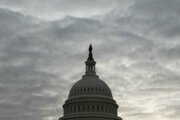Given the rapid pace of economic change and technological innovation, some wonder whether the lessons currently taught by college and graduate school professors will be relevant in 10, 20 or 30 years.
If you’re a prospective student worried about whether the degree you plan to pursue will have lasting value, understand that your concern is shared by many academics, who constantly update courses to account for emerging trends. Faculty in both traditional liberal arts disciplines and more vocationally oriented programs also focus on teaching timeless skills such as analyzing and solving problems and brainstorming new ideas.
Abilities Often Matter More Than Paper Credentials
Though some professions, such as medicine, require a specific degree and training regimen, many fields are open to people with a variety of academic backgrounds. This includes self-taught individuals who learned marketable skills on their own — without the help of a college or university — and people who completed short certification programs instead of formal degrees.
Profitable trades like plumbing and carpentry are viable job options that should not be stigmatized, according to many educational leaders.
Although a four-year undergraduate education is appropriate for some students, it isn’t necessarily a good fit for everyone. And some lucrative and interesting jobs don’t require a bachelor’s degree, says James Rhyu, CEO of Stride, an education company that designs personalized learning programs for students.
“We have this societal framework that is just outdated, and I think we need to move past it, and we need to allow our youth to have financially rewarding careers without the burden of debt,” he says.
Rigorous, high-quality training in a creative or technical field can be worthwhile if it helps a person fulfill his or her intellectual potential and cultivate a marketable skill set, education experts say. There’s a misconception, they add, that the only type of academic program that can pay off financially and personally is one focused on a particular occupation.
[READ: What You Can Do With a Liberal Arts Degree.]
“When we focus on what’s ‘practical,’ we really do run the risk of training students for yesterday’s jobs, yesterday’s problems,” says E. Michele Ramsey, coauthor of the book “Major Decisions: College, Career and the Case for the Humanities” and an associate professor at Pennsylvania State University’s Berks campus.
Ramsey encourages prospective college and graduate students who are figuring out what to study to honestly assess their interests and talents first. Then they should choose a program that aligns with who they are and the type of work they hope to do, Ramsey suggests, adding that it is unwise to concentrate on a field simply because it is trendy.
[Read: Your College Major Does Not Define Your Career.]
The goal should be to develop a comprehensive set of skills, including not only those related to science and math but also ones that are connected to communication and getting along with people, Ramsey says. Being a broad-minded, innovative, lifelong learner is essential for career success in a rapidly changing society, she emphasizes.
Doris Zahner, chief academic officer for the Council for Aid to Education — a nonprofit organization that assesses the job-readiness of incoming, current and graduating college students — says students’ career outcomes frequently depend more on their critical thinking abilities than their college major.
Zahner, who has a Ph.D. in cognitive psychology, acknowledges that content knowledge is important to employers, but she says employers often place a higher premium on soft skills that aren’t reflected on transcripts.
Money-minded prospective students may wish to pursue a degree that is typically associated with an impressive salary, but before doing so they should consider whether they have enough aptitude in and curiosity about that field to successfully complete coursework in it, experts warn.
Growing Fields, In-Demand Majors, Hot Skills
College and grad school hopefuls should bear in mind that professions that are expanding today might contract someday, and understand that forecasts about which jobs will increase are sometimes incorrect.
Thomas Mobley, a talent development and human resources professional who is also an assistant professor at the University of Cincinnati, notes that predictions in the 1980s of a long-term explosion in the number of travel agents ended up being wrong.
Nick Swayne, executive director of 4-VA, a collaboration among a handful of universities in Virginia, makes a similar point.
“Certainly there are degrees that are more vulnerable to disruption through innovation than others, but those are tough to predict,” he wrote in an email. “They differ by geographic location, and transformative disruptions are tough to anticipate with sufficient advanced warning to be useful in picking a career field.”
Nevertheless, a consensus among many college and university faculty, human resources professionals and economists is that the following academic disciplines provide marketable skills for which there is growing demand: cybersecurity, computer science, data analytics, information systems and petroleum engineering.
Degrees that relate to health care are also a good bet at the moment, experts say.
[Read: U.S. News Guide to College Majors.]
“Education on the frontier, like the world outside the academy, will have to be increasingly inter-disciplinary and human-centered,” Ross Gittell, president of Bryant University in Rhode Island, wrote in an email. Gittell has degrees in several academic disciplines, including a Ph.D. in public policy, an MBA and a bachelor’s in economics. “Employers are seeking graduates who can apply the latest technology, data analytics and creativity at the workplace in their discipline areas and in inter-disciplinary ways and who can relate and work well with others,” he adds.
[Read: How to Evaluate Different Types of Engineering Degrees, Jobs.]
Noam Wasserman, dean of Yeshiva University’s Sy Syms School of Business in New York City, says there is an important distinction between focusing one’s schooling on a timeless issue versus a timely one.
“Compared to timely issues, like social media strategies and financing alternatives that change rapidly, timeless issues tend to center on intrapersonal and interpersonal dynamics, because human nature is relatively constant across generations, geographies and market conditions,” he says.
Toby Walker, vice president of BASIS Independent Schools, a national network of secular private schools for children, suggests taking a “historical perspective” when choosing what to study.
“People have always worried about the future, and for generations, people have been concerned that the skills, the subjects that students study in school and college are not going to prepare them for what’s going to happen next, and you know that’s been a perennial concern,” Walker says. “But we still have students who are going on to do great things with wonderful opportunities based on the high school and undergraduate experiences they’ve had.”
Searching for a college? Get our complete rankings of Best Colleges. Searching for a grad school? Access our complete rankings of Best Graduate Schools.
More from U.S. News
10 College Majors With the Highest Starting Salaries
What Graduate School Is and Who Should Consider Attending
How to Choose Among the Many Types of Business Programs
Picking the Degrees and Majors of the Future: What to Know originally appeared on usnews.com







